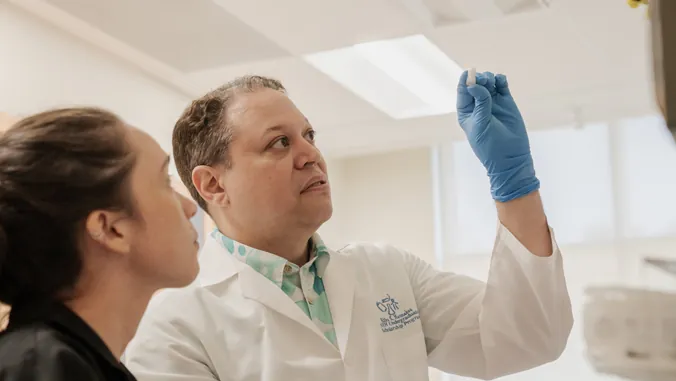
Unlocking the Secrets of Gut Bacteria: How Microbes Influence Our Genes!
2025-09-22
Author: Ming
Revolutionary Findings on Gut Microbes and Health
Prepare to rethink everything you know about gut health! New groundbreaking research from the University of Hawai‘i at Mānoa reveals that the trillions of microbes residing in our digestive system could wield more influence over our well-being than anyone realized.
The Gut Microbiome: A Game Changer in Medicine
Published in September 2025 in the International Journal of Molecular Sciences, this study dives deep into the fascinating world of the gut microbiome—the intricate community of bacteria, viruses, and fungi that inhabit our intestines. Scientists are now uncovering how these microbes interact with our genes, potentially shaping our risk for diseases, the aging process, and the effectiveness of medical treatments.
The Epigenetics Link Explained!
What’s truly astounding is the microbiome's ability to impact epigenetics—the method that switches our genes on and off without altering the actual DNA sequence. By utilizing chemical tags, such as DNA or RNA methylation, gut bacteria can dictate how and when our genes express themselves. As Alika K. Maunakea, a co-author of the study, puts it, "By understanding how gut microbes influence our genes, we can begin to imagine new ways to prevent disease and promote health, inching us closer to personalized medicine."
Lifestyle: The Key to Microbial Interactions
But wait, there’s more! Everyday factors like diet, stress, medications, and aging play a crucial role in this dynamic relationship. Our gut bacteria produce vital nutrients and chemical signals that can alter gene activity related to immunity, metabolism, and even brain function. In return, our unique lifestyle choices and genetic backgrounds create a synergy that determines which microbes flourish in our systems.
The Future of Personalized Medicine is Bright!
The possibilities ahead are mind-blowing. Researchers envision a future where understanding this intricate loop enables doctors to design treatments tailored to individual needs. Imagine utilizing microbial biomarkers to assess health, developing 'live biotherapeutics' (beneficial bacteria prescribed like medicine), or perfecting fecal microbiota transplants to transfer healthy gut microbes to patients.
Ensuring Ethical Advances in Microbiome Research
With great advancements come great responsibilities! The study emphasizes the necessity of ethical guidelines as the field evolves. It calls for frameworks like the FAIR principles (Findable, Accessible, Interoperable, Reusable) and CARE principles (Collective benefit, Authority to control, Responsibility, and Ethics) to ensure equitable benefit from microbiome research across diverse populations.
A New Era of Precision Health Awaits!
In summary, this research illuminates the captivating dialogue between our gut microbes and human genes, showcasing both the immense promise and the ethical responsibilities of this emerging science. By mapping these interactions, we stand at the brink of precision health strategies that can tailor prevention and treatment to each individual’s unique microbial landscape.



 Brasil (PT)
Brasil (PT)
 Canada (EN)
Canada (EN)
 Chile (ES)
Chile (ES)
 Česko (CS)
Česko (CS)
 대한민국 (KO)
대한민국 (KO)
 España (ES)
España (ES)
 France (FR)
France (FR)
 Hong Kong (EN)
Hong Kong (EN)
 Italia (IT)
Italia (IT)
 日本 (JA)
日本 (JA)
 Magyarország (HU)
Magyarország (HU)
 Norge (NO)
Norge (NO)
 Polska (PL)
Polska (PL)
 Schweiz (DE)
Schweiz (DE)
 Singapore (EN)
Singapore (EN)
 Sverige (SV)
Sverige (SV)
 Suomi (FI)
Suomi (FI)
 Türkiye (TR)
Türkiye (TR)
 الإمارات العربية المتحدة (AR)
الإمارات العربية المتحدة (AR)